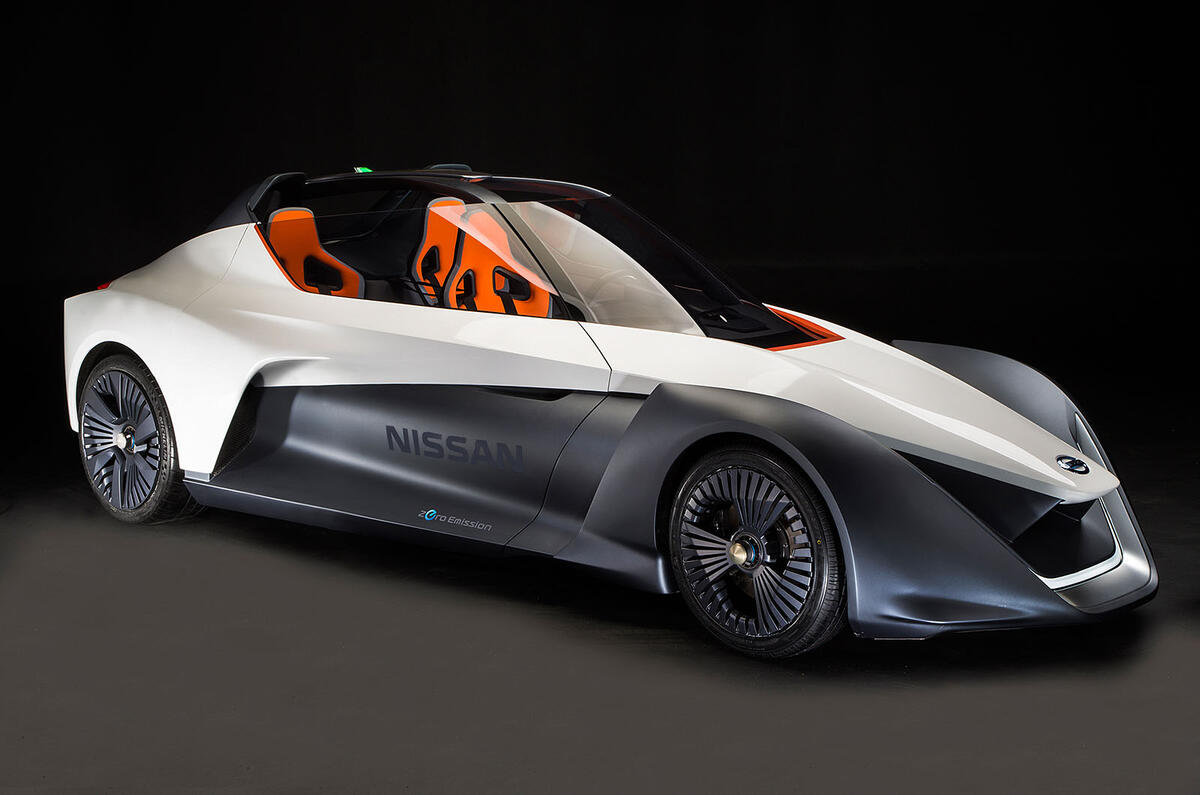A Nissan electric sports car could be feasible by the turn of the decade, according to Gareth Dunsmore, director of electric vehicles for Nissan Europe.
Speaking at the dynamic launch of the Nissan BladeGlider electric concept car, Dunsmore said that while it would be possible to produce an electric sports car now, the market has to be ready for it – and while it isn’t yet, by 2020 the demand for electric vehicles will be much higher.
“It’s a gradual thing. Norway has now tipped to 20% EVs,” said Dunsmore. He also predicted policy change would push other European markets towards the same. “As we head towards 2020 you’ll see greater moves towards EVs. Governments are starting to support the move towards climate change objectives, and to get to that point needs a huge shift towards electric mobility.”
In March this year, EVs in the UK accounted for around 6% of all new car sales.
Dunsmore said although Nissan doesn’t wait for government support – it has invested £3.1bn in EVs, makes its own batteries rather than buying them in, and the 200,000 Nissan Leafs it has sold have covered more than 2.5bn miles – that continued incentives would smooth the progress of EVs.
“Countries that start and stop [incentives] don’t move forward,” he said, and insisted that they need to be wilfully different from subsidies for range-extended electric vehicles. “It’s not the amount of money, but the message that turns people’s heads. It’s to show there are different options.”
The BladeGlider, then, is meant to change people’s perceptions of EVs for when the opportunity is right. Nissan already makes two sports cars – the Nissan 370Z and the Nissan GT-R – but both have high-consumption petrol engines.
“We need to demonstrate the value of the vehicle,” said Dunsmore, who confirmed that Nissan is attempting to make the image of electric vehicles more exciting. The BladeGlider is effectively a development of first the DeltaWing, then the Zeod RC endurance racing cars. It has two electric motors, one driving each rear wheel, and can torque-vector to apportion power to an outside wheel if it deems it necessary.
Despite the narrow front track the BladeGlider generates impressive cornering forces. Driver and development engineer Darren Cockle, from Nissan’s partner in the project, Williams Performance Engineering, says it’s impressively stable. “The [BladeGlider's] narrow track makes it more stable under braking,” he says, “and agile when it turns. It feels like it’s pivoting around the driver’s seat.”
The BladeGlider has a top speed of 115mph and a 0-60mph time of less than five seconds.







Add your comment